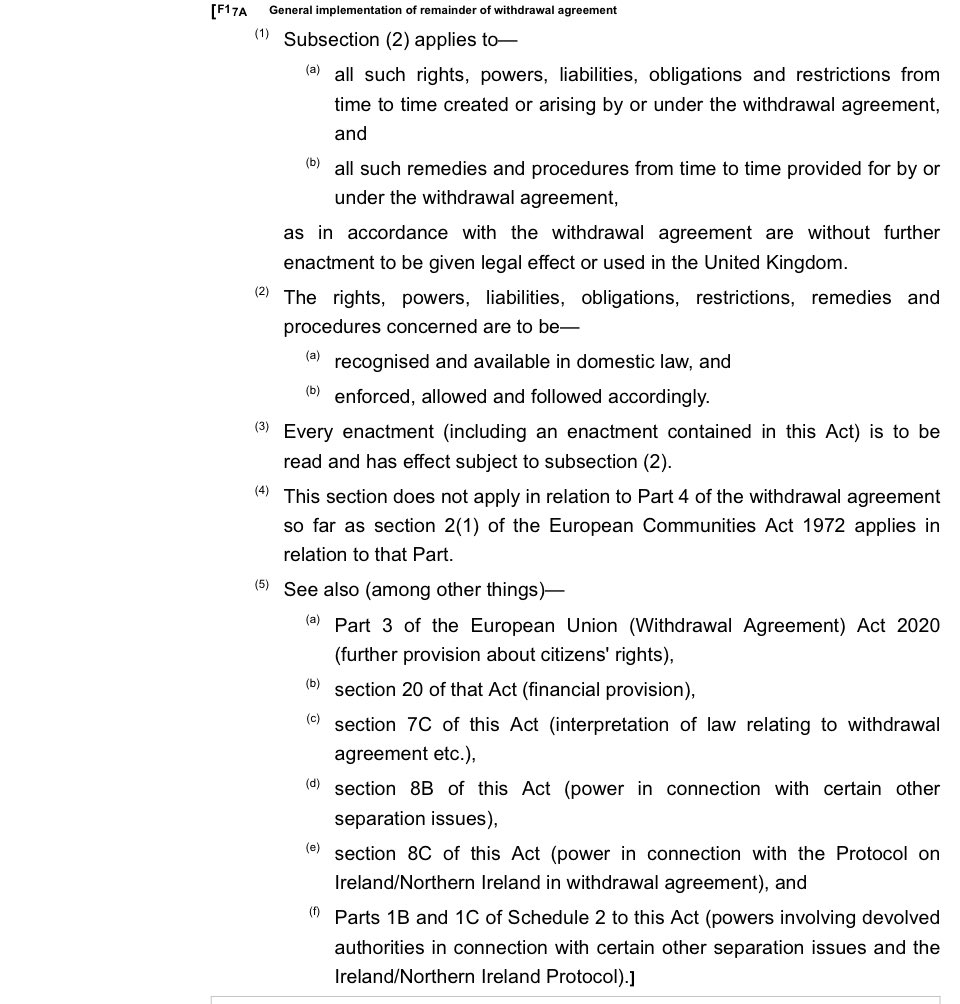
Harsh but fair.
https://twitter.com/jillongovt/status/1407295082622029826
Two case studies. On subsidy control, it should have been a U.K. priority to renegotiate Art 10 of the Protocol (which is going to cause problems).
But no discernible attempt was made to do that. Perhaps because that would have involved clear commitments up front that the U.K. would have its own effective subsidy control regime.
But instead the current govt flip-flopped over a subsidy control regime and resorted to threats just to break Article 10 (Part 5 of the IMB) - threats that were both trust-destroying and ineffective (no way past the Lords) at the same time.
Result: we have a commitment to an effective subsidy regime: but we are nonetheless left with Art 10 in full.
Mobility: huge U.K. interest in mobility of our creative sector. Acknowledged by govt.
But instead of building on EU offer, decision taken to drop any mobility chapter (presumably to maintain the purity of the “end FOM” line) and to squeeze what we wanted for the creative sector into the services provisions (where what is needed doesn’t fit). Result: nothing.
Patter about maintaining “sovereignty” is really a cover for the failure to use our sovereignty to get an agreement with the EU that delivers on our key interests (in these respects as in many others).
Or as Jill puts it -
https://twitter.com/jillongovt/status/1407295594608173058
Quite. As we are going to find out when Covid restrictions on travel fall away.
https://twitter.com/skapinker/status/1407301304234426372
• • •
Missing some Tweet in this thread? You can try to
force a refresh






